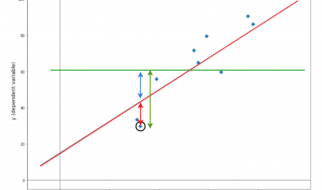?I should like to be able to love my country and still love justice. I don?t want just any greatness for it, particularly a greatness born of blood and falsehood. I want to keep it alive by keeping justice alive.?
? Albert Camus, ?Letter to a German Friend?
Didja ever have one of those mornings where you woke up and it felt like you?d been teleported back to 1968?
And it was not because we went with friends to see the movie Yesterday, although we did, and as Bill put it, what?s not to like about two hours of Beatles music?

Alas, my illusion of time travel was triggered by something rather less enjoyable: the return of ?Love it or leave it.?
In the late 1960s that phrase became a popular declaration targeting Vietnam war protesters, whose opposition took forms as extreme as burning the American flag.
Those who supported the war, or just disliked protesters, saw this as a rejection of America itself.
Had this been followed by an objective, open-minded discussion, it could have been explained that in most cases, burning the flag and other provocative acts were not rejections of America. They were assertions that America has a vital creed and values it was not upholding.
There was rarely, however, an objective, open-minded discussion. More often there were verbal or physical confrontations whose visceral furor matched or surpassed the anger in today?s political dialogue.
Accordingly, it was frequently suggested that those who burned the flag, demonstrated against the war or in some cases simply opposed the war should move elsewhere if they didn?t like the way America does business.

Country singer Ernest Tubb ? an artist with a marvelous body of work ? recorded a Jimmie Helms song titled ?It?s America? that went like this: ?It?s America, you got no right to deceive it / It?s the best there is, you?d better believe it / Good men gave their lives so we could live to see it / It?s America, love it or leave it.?
Merle Haggard, another extraordinary artist, put it more bluntly in ?The Fightin? Side of Me?: ?If you don?t love it, leave it / Let this song that I?m singin? be a warning. . . .?
The irony, noted many times before, lies in the fact that Vietnam war protesters in 1968 and progressive female congressional representatives today are doing exactly what Paul Ryan, John Boehner, Mitch McConnell and Fox News did for the eight years of the Barack Obama administration: saying the country was going in a dangerously wrong direction.
Don?t recall anyone suggesting they grab their go bag and leave.
It?s not that tough a concept, to be honest. We all have an idea of what America should be, or could be, and how it should tackle its problems and the problems of the world. So we will always have different views on how we should be addressing those problems at any given juncture.
Strategic disagreement is a universal phenomenon among human beings, found in families and found in nations. America is just designed to be more tolerant of divergent views than many other countries.
That tolerance, in fact, is one thing Americans all across the spectrum routinely call a good thing that we should retain.
Except sometimes they mean it and sometimes they don?t. When it comes to hearing actual criticism, they get prickly and start tweeting that people who disagree with them should pack up and leave.
An America free of these annoying dissenters is clearly the fantasy endgame for President Trump, who suggested on Twitter that four congresswomen, all non-Caucasian, should either stop suggesting ways America could improve itself or ?go back where you came from.?
Trump is far from the first irritated public official to make this suggestion, which means that with any luck he also won?t be the first to discover that?s not how America works.
It?s not that no one agrees with him. On the contrary, tens of millions of people would see the unchallenged implementation of their personal policy preferences as the ultimate victory.
Not gonna happen. We hope.
America is hard. It?s ragged. It?s noisy. It?s contentious. It finds reasons to become angry and exasperated in the smoothest of times. But it?s at its best when its many sides find ways to grudgingly acknowledge that our neighbors aren?t the enemy.
The enemies are things like poverty, inequality, lack of opportunity, troublesome international rivals, economic cheating, disrespect and indifference. Ideological arguments are just the vehicle for debating how to address them, or not address them.
?Love it or leave it,? in 2019 as in 1968, is the call of the playground bully, someone who hopes to win by intimidation and feels confident that the crowd cheering him on is unbothered by the fact that if three of the president?s four targets went back to the country where they came from, it would be America.
The fourth became an American citizen, as did the ancestors of Donald Trump, and of me, and of virtually everyone who sees the president?s tweets as standing up for Real Americans.
Truth is, we?re all Real Americans. That?s kind of the whole point of America. It?s just sometimes easier to ignore that and high-five the fantasy that we can offload everyone who?s less real than ?we? are.
As a footnote, I?m apparently not the only one who recently felt teleported back to 1968. Sen. Lindsay Graham dismissed the president?s targets as ?a bunch of communists.?
Can?t wait for his next media encounter, when he can add that they are also hippies and beatniks.
I do think that if Graham stays on the ?communist? theme, both he and the president might want to consider explaining why these four American congresswomen are bad and Kim Jong Un, who at last report was an actual communist, is the president?s latest new best friend.
On the other hand, Graham does have the qualifications to speak on ?Love it or leave it,? considering he represents the state that took the second option in 1861.
As for 1968, I personally remember some good things, like Janis Joplin and B.B. King at the Newport Folk Festival. But in the end, the assassinations and the war made it a sad year. ?Love it or leave it? made it a little sadder.
It?s having the same effect in 2019.
 Albert Camus.
Albert Camus.
?There is always something in us that yields to instinct, to contempt for intelligence, to the cult of efficiency. Our great virtues eventually become tiresome to us. We become ashamed of our intelligence, and sometimes we imagine some barbarous state where truth would be effortless.? ? Albert Camus

